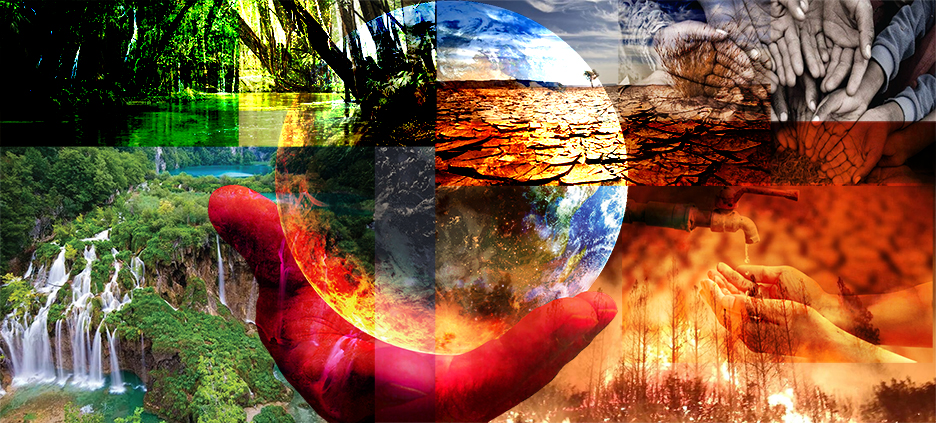
Complex issues like environmental degradation, over-exploitation of natural resources, climate change, wealth inequality, and human conflict are currently plaguing social-ecological systems. The sustainable growth of society is threatened by these interrelated issues, which cannot be sufficiently addressed by the subject matter of separate disciplines. Due to the complexity and diversity of the world, it is necessary to have insight, knowledge, abilities, and strategies from a wide range of disciplines that transcend institutional and discipline borders as well as cultural and societal realities. A rapidly expanding area of study and teaching called transdisciplinarity has the potential to significantly impact sustainable development (Ertas & Gulbulak, 2024).
The Rio Earth Summit in 1992 gave rise to the term sustainable development, or SD. The main focus of sustainable development is on the relationships and underlying causes of complex problems including environmental degradation, socioeconomic inequality, and climate change. Sustainability is more than just protecting the environment; it also means embracing the obligation to work toward harmony with other people and the natural world. It is about taking care of the earth and sharing with others. The term "sustainable development" has several definitions, however, the following is the most commonly used definition in the literature: "Development which meets the needs of the current generation without compromising the ability of future generations to meet their needs" (UN, 1989).
The United Nations established 17 Sustainable Development Goals (SDGs) in 2015 as a guide for achieving prosperity and peace for both people and the environment. The 17 goals serve as a call to action for nations around the world to form international partnerships in order to address pressing issues like poverty, inequality, and other forms of deprivation. They also include strategies to improve health care, education, and the lack of consistent equality, as well as methods to promote economic growth, all while making sure that climate change is consistently addressed and that the planet's oceans and forests are preserved (United Nations).
Below are a few of the 17 Sustainable Development Goals:
- No poverty: end poverty, in all its forms, everywhere
- Zero hunger: end hunger, achieve food security and improved nutrition, and improve agriculture
- Clean water and sanitation: ensure the sustainable management and availability of water and sanitation for all
- Affordable energy: ensure access to affordable, reliable, sustainable, and modern energy for all
- Reduced inequalities: reduce inequality within and among countries
- Responsible consumption and production: ensure sustainable consumption and production patterns
- Climate action: take urgent action to combat climate change and its impacts

Why Is the Green Economy Important?
Making lifestyle adjustments to support an eco-friendly way of living is known as "going green." It entails raising your level of environmental consciousness and making lifestyle and behavioral changes to cut down on the waste and pollution you produce. Going green benefits your children's future, your health, the environment, and your financial situation. The goal of the green movement is resource conservation so that present and future generations' needs can be satisfied.
An inclusive green economy is one that lessens environmental hazards and scarcities while enhancing social fairness and human well-being. The current economic paradigm, which exacerbates inequality, promotes waste, causes resource scarcity, and poses several risks to the environment and public health, can be replaced with an inclusive green economy.
The UN Environment created the Green Economy Initiative (GEI) in 2008 with the goal of encouraging national and international policymakers to support environmental investments through a program of worldwide research and assistance. UN Environment released "Uncovering pathways towards an inclusive green economy" during the 2015 UN General Assembly. Sharing, circularity, cooperation, solidarity, resilience, opportunity, and interconnectedness are among the ideas that are emphasized in the manifesto (UN Environment Program).
An inclusive green economy is one that lessens environmental hazards and scarcities while enhancing social fairness and human well-being. The current economic paradigm, which exacerbates inequality, promotes waste, causes resource scarcity, and poses several risks to the environment and public health, can be replaced with an inclusive green economy.
The UN Environment created the Green Economy Initiative (GEI) in 2008 with the goal of encouraging national and international policymakers to support environmental investments through a program of worldwide research and assistance. UN Environment released "Uncovering pathways towards an inclusive green economy" during the 2015 UN General Assembly. Sharing, circularity, cooperation, solidarity, resilience, opportunity, and interconnectedness are among the ideas that are emphasized in the manifesto (UN Environment Program).


